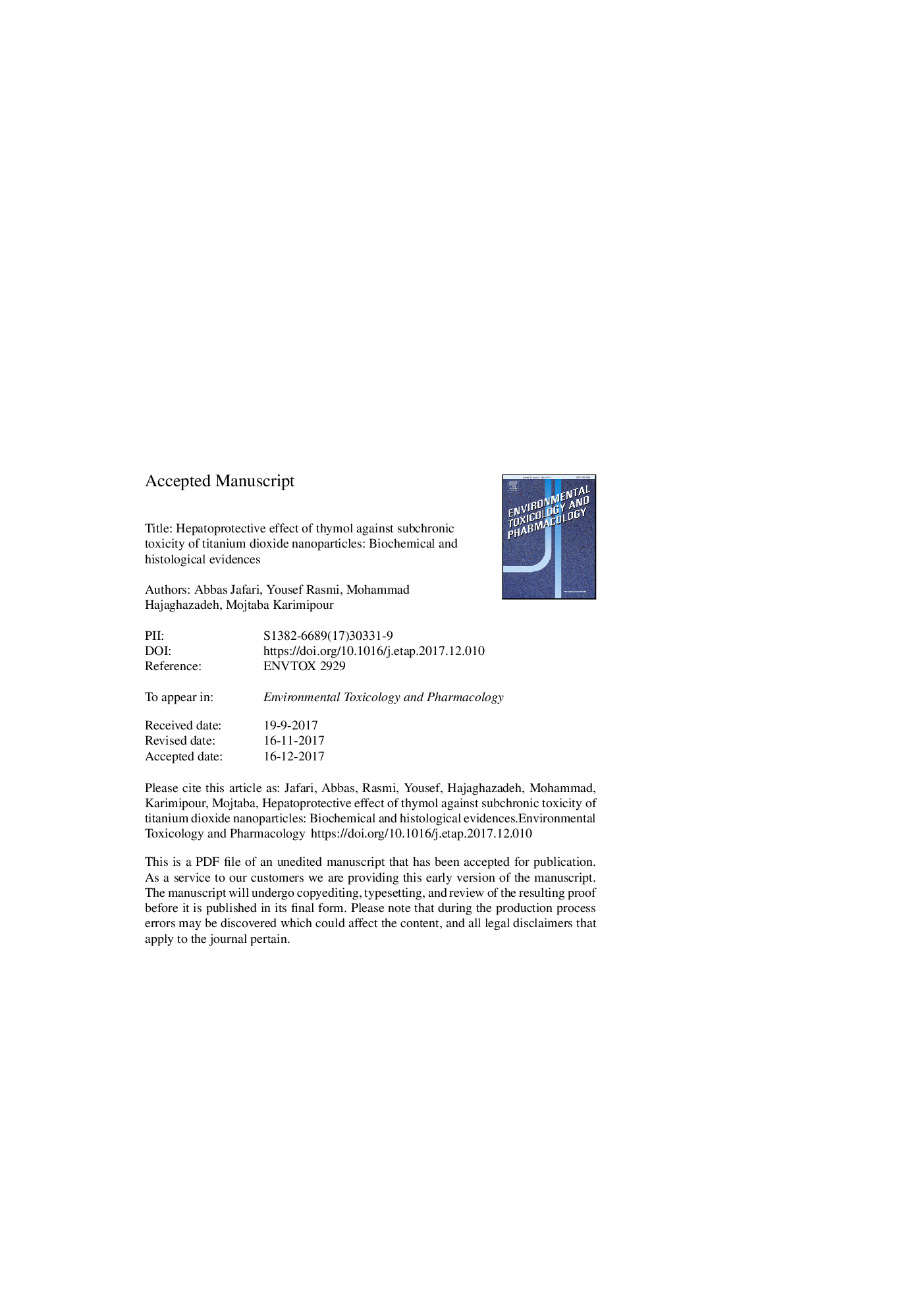| Article ID | Journal | Published Year | Pages | File Type |
|---|---|---|---|---|
| 8545984 | Environmental Toxicology and Pharmacology | 2018 | 23 Pages |
Abstract
The study was aimed to investigate the protective action of thymol against nano titanium dioxide (nano-TiO2) induced hepatotoxicity in rats. To achieve this purpose, the rats were divided into four groups (nâ¯=â¯6) including control, nano-TiO2 (100â¯mg/kg), nano-TiO2â¯+â¯thymol (10â¯mg/kg) and nano-TiO2â¯+â¯thymol (30â¯mg/kg). Intragastric (IG) administration of nano-TiO2 for 60 consecutive days caused widespread histological changes and significantly induced oxidative stress in the liver tissues as manifested by the rise in serum transaminase activities accompanied by marked decline of enzymatic (catalase, superoxide dismutase and glutathione peroxidase) and non-enzymatic (ferric reducing antioxidant power and glutathione) antioxidant levels, and rise of malondialdehyde levels in liver tissue. Pretreatment with thymol (IG) prior to nano-TiO2 administration significantly ameliorated all of biochemical and histopathological alterations in a dose-dependent manner. In conclusion, thymol effectively protects against nano-TiO2-induced hepatotoxicity in rats by its antioxidant properties.
Related Topics
Life Sciences
Environmental Science
Health, Toxicology and Mutagenesis
Authors
Abbas Jafari, Yousef Rasmi, Mohammad Hajaghazadeh, Mojtaba Karimipour,
